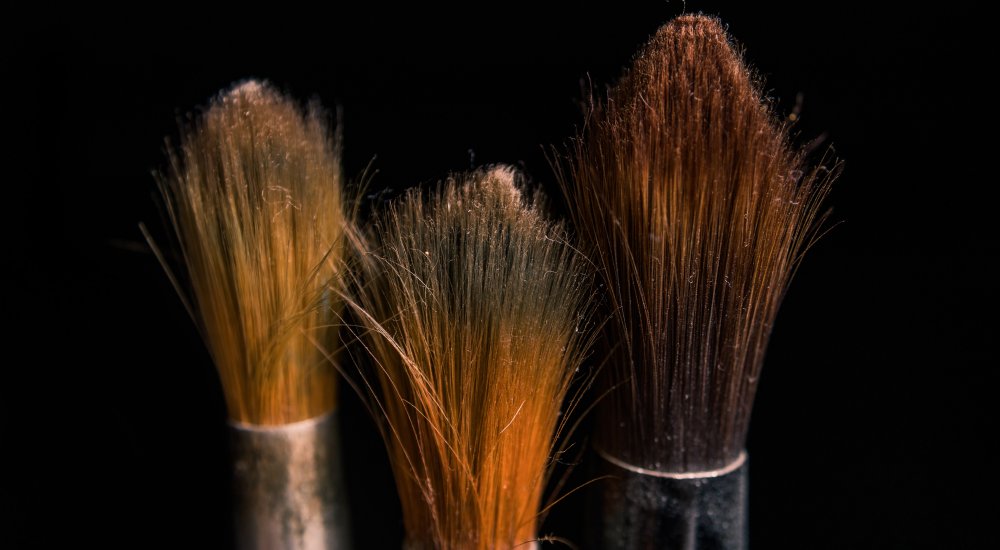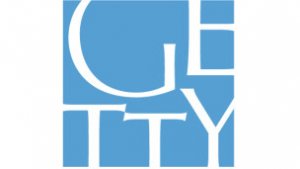Getty Foundation Pre- and Postdoctoral Fellowships
Annual Theme: Provenance

Getty Pre- and Postdoctoral Fellowships are intended for emerging researchers to complete work on projects related to the Scholars Program’s annual theme. While in residence, fellows may pursue research projects, complete dissertations, or expand dissertations for publication. There are dedicated grants for fellows who are expanding critical inquiry of African American art and its frameworks as part of the Getty’s African American Art History Initiative (AAAHI). All recipients are invited to make use of Getty Research Institute (GRI) collections, join in weekly lectures, and participate in intellectual life at Getty. Predoctoral Fellows may be in residence at the Getty Center, while Postdoctoral Fellows may be in residence at the Getty Center or Getty Villa.
Background
Getty Scholars Program
Getty Pre- and Postdoctoral Fellowships are part of the Getty Scholars Program so that a mix of senior scholars and junior fellows compose the cohort. The cohort's research projects are focused on an annual theme. Since 1985, the program has hosted around 1,300 scholars from over fifty countries to conduct research on art history and visual studies while residing in Los Angeles. Selected projects have spanned geographical regions and time periods, from ancient to contemporary eras. The three main categories of grants are:
- Scholar Grants for established researchers and professionals who received their PhD before September 1, 2022 and/or possess strong records of publication and professional activity, at the Getty Center or Getty Villa.
- Postdoctoral Fellowships for recently granted PhDs at the Getty Center or Getty Villa
- Predoctoral Fellowships for PhD candidates at the Getty Center
This page provides information specific to Pre- and Postdoctoral Fellowships.
Applicants for 2026–2027
Application Timeline
Applications for 2026–2027 year grants will open on July 1, 2025. The deadline to apply is October 1, 2025.
Annual Theme: Provenance
In recent years the study of provenance has expanded in urgency and scope, in line with the art historical turn toward the lives of objects, and also in response to evolving debates regarding the ownership of art. Relevant to all periods and areas of art production, provenance research brings to light fundamental questions about who may lay claim to art and how objects transform as they change hands, collections, and exhibition venues. Increasingly available information on broken chains of ownership caused by theft, illicit trade, and historical looting have fueled restitution debates and ignited questions about the ethics of collecting in climates of conflict or asymmetries of power. Digitization and databases have also opened up the interdisciplinary possibilities of provenance research and laid the ground for art restitution efforts and other forms of reparation.
For the 2026–2027 year, the Getty Scholars Program invites innovative proposals for projects that explore provenance and adjacent research areas, including but not limited to the history of collecting, the study of the art market, and broader explorations around the ownership of art objects. The scholar cohort will be invited to examine and critique the arena of provenance studies while also envisioning its future, situated between the practices and demands of source communities, art historians, museums, and the market. Applicants are invited to propose projects, either individual or collaborative, that reflect upon the ownership, transfer, and movement of art objects from all world regions and time periods.
For this year, the Getty Scholars Program aims to link scholars with Getty resources and researchers and foster a lively community around the study of provenance—an increasingly significant domain of art historical and curatorial practice that centers the histories of both objects and people. While in residence, scholars will have the opportunity to delve into the Getty Research Institute’s vast collections of rare materials that support provenance research and explore the newly remodeled Getty Provenance Index, which lays the ground for cutting-edge computational approaches to the field.
African American Art History Initiative (AAAHI) Fellowships
Under the umbrella of the annual theme, dedicated grants are available via the African American Art History Initiative (AAAHI). This residential program, which welcomed its first cohort of scholars in fall 2021, provides financial support and housing to scholars who are expanding critical inquiry of African American art and its frameworks. AAAHI invites scholars working on topics that align with the annual theme. As part of the scholar year cohort, AAAHI scholars have opportunities to present their research and receive feedback from an interdisciplinary group of peers. AAAHI scholars can also expect additional programming with Getty staff supporting the study of African American art.
We invite applications from scholars who focus on African American art and visual culture in all time periods and media and in a broad range of theoretical and methodological traditions. Projects that propose engagement with Getty’s growing collections of archival and primary source material related to African American art history are welcome. However, relevance to Getty holdings is not a project requirement. Applicants should indicate in their project proposal how their project would align with AAAHI's aim to make African American art history more visible to the public and accessible to the scholarly community worldwide.
There will be a virtual information session for interested AAAHI applicants in September 2024. More information will be forthcoming.
Getty Villa Theme
For postdoctoral scholars interested in being in residence at the Getty Villa, see the Getty Scholars Program at the Villa page for information about their theme. Postdoctoral applicants for that program will still apply via the Pre- and Postdoctoral Fellowship application form (see “How To Apply” below).
Grant Details
The following provides information about Pre- and Postdoctoral Fellowships. Visit the Getty Scholars Program or Getty Scholars Program at the Villa pages for details about grants for established researchers and professionals.
Eligibility
Predoctoral Fellowship applicants must have advanced to candidacy in their doctoral program by the application deadline and should expect to complete their dissertations during the fellowship period.
Applicants who received their doctoral degree within the past 5 years (after September 1, 2021) should apply for a Postdoctoral Fellowship.
Applicants who received a PhD more than 5 years ago (before September 1, 2021) should apply for a Scholar Grant at the Getty Center or Getty Villa.
After a waiting period of 6 years, previous Getty Residential Grant recipients in any category are eligible to reapply for another grant in whichever category they are eligible for and interested in. See FAQs for more information.
Terms
Pre- and Postdoctoral Fellows are in residence for nine months from late September to late June. Predoctoral fellows may be in residence at the Getty Center, while Postdoctoral fellows may be in residence at the Getty Center or Getty Villa.
The grant also includes a workstation at the Getty Research Institute or Getty Villa, a travel stipend, an apartment in the Getty scholar housing complex, and an available healthcare option. These terms apply as of July 2024 and are subject to future changes.
See the overview of the Getty Residential Scholar and Fellow Program for further details about stipends, housing, healthcare, and more.
- Getty Predoctoral Fellowship recipients receive a stipend of $30,000.
- Getty Postdoctoral Fellowship recipients receive a stipend of $35,000.
Application Process
Grant Portal
Applications are submitted through the Getty Foundation Grant Portal. You will need to create or update your account and password, log in, and begin a new application. We strongly recommend using Google Chrome, though you may also use Firefox or Safari. The Internet Explorer (IE) browser is not compatible with our portal.
You may return to your work at any time by visiting the portal at the link above and logging into your account.
Note: Once you have created and saved an application form, you may return to work on the same form by selecting the "Applications: In Progress" link. Otherwise, you may inadvertently create multiple versions of the same application.
Project Proposal
The project proposal should not exceed 5 pages typed and double-spaced. The proposal should include:
- Project description
- How the project addresses the annual theme
- How the project meaningfully contributes to the applicant’s field of scholarship
- Proposed plan for study and research
- Benefits to the project from the resources at the Getty (if applicable)
- For AAAHI Grants: also include how the project will generate new knowledge in the field of African American art history
Selected Bibliography
Include a bibliography of selected scholarly works, other than your own, that are important to your project and that situate it in its intellectual framework. This document should not exceed 2 pages, typed and single-spaced.
Doctoral Dissertation Abstract
Provide a brief summary of your dissertation research, no more than 2 pages, single-spaced, including images and citations.
Curriculum Vitae
The curriculum vitae (CV) should include education, honors, grants and awards, languages, professional experience and activities, and publications or other relevant accomplishments.
Writing Sample
Each fellowship applicant must submit one writing sample of no more than 25 double-spaced pages. This may be a sample of your dissertation and should best represent your project’s methodological concerns.
Confirmation Letter
Predoctoral applicants must submit a letter from their academic institution confirming that they have passed their qualifying exams and have advanced to candidacy.
Postdoctoral applicants must submit confirmation from their academic institution that their doctoral degree has been awarded.
Letters of Recommendation
The application will prompt you to request 2 confidential letters of recommendation through the system. After providing the names and emails of your references, a link will be sent to them automatically that will allow them to upload their confidential recommendations. Recommenders should upload an original letter to the Fluxx portal. Once you request this information, you will be able to monitor your account to confirm that the letters have been submitted. Alternatively, you may use Interfolio to submit your letters in the Fluxx portal.
Review Process
Evaluation Criteria
Getty Pre- and Postdoctoral Fellowships are awarded on a competitive basis. Applications are evaluated based on the following criteria:
- Overall quality of the application, including adherence to the annual theme
- How the project would contribute to the advancement of the applicant’s field of scholarship
- Applicant's past achievements
- Applicant's qualifications to undertake the project
Decision Notification
Applicants will be notified of their application outcome approximately 6 months after the deadline.
Frequently Asked Questions
Find answers to the most common questions about residential grant opportunities at Getty.
Still have questions? Send inquires to researchgrants@getty.edu.
